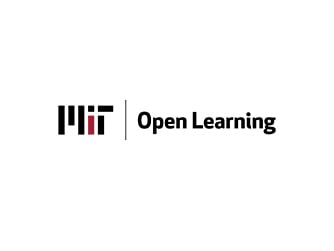3 Things You Need to Know About the World Economic Forum Findings on the Future of Work
Online Education | Professional Development | Leadership | MIT Open Learning
New technologies are giving rise to new jobs and redefining the tasks of many more. Companies around the world and across all industry sectors are trying to capture the potential for growth and adopt new technologies in their business models to remain competitive in today’s dynamic markets.
The World Economic Forum’s recent report, Jobs of Tomorrow: Mapping Opportunity in the New Economy, analyzed and predicted the fastest growing careers of the future in the global economy. They identified seven career groupings (or “professional clusters”) that are key for the future of work:
- Care Professionals
- Data &AI
- Engineering and Cloud Computing
- Green Professions
- Marketing, Sales and Content
- People and Culture
- Product Development
With insights from leadership and human skills experts at MIT, we summarized our top 3 takeaways from the World Economic Forum report:
1. Tech skills are in great demand
Careers in STEM are projected to be the fastest growing in the coming few years, as technologies like AI, robotics, and cloud computing become more prevalent across industries and sectors. These “Tech Disruptive Skills,” which also include data science, natural language processing, automation, and cybersecurity, are projected to have an outsize impact on business models. According to the report, “newly created jobs will be in job openings for wholly new occupations, or for existing occupations undergoing significant transformations in terms of their job content and skills requirements.”
Workers looking to break into emerging fields will need these new skills and knowledge, but developing them can be a challenge, according to Ed Crawley, Ford Professor of Engineering at MIT and lead instructor for MIT xPRO’s online course, Leadership for Engineers, Scientists, and Researchers.
“The essential ingredient to further social and economic development is the skills and knowledge of college graduates,” said Crawley. “The amount of skills, knowledge, and judgment that a person needs is expanding every year, and yet we have a limited amount of time to convey it through the formal education system.”
And these tech skills have a short shelf life. “Even the best tech experts need to upgrade their tech skills on a regular basis,” notes George Westerman, Principal Research Scientist for Workforce Learning in the MIT Jameel World Education Laboratory, “And that requires adaptability & other human skills beyond just tech skills,” he says.
2. Human skills are important across professions
The growth of Data and AI, Engineering and Cloud Computing roles account for about 16% of the World Economic Forum’s 2.4 million predicted 2022 job openings. Other high-growth categories like “People and Culture,” “Product Development,” “Marketing,” and “Sales and Content” emphasize what the World Economic Forum calls “business skills, a mix of specialized technical and creative problem-solving skills like marketing, project management, or budgeting.” Capabilities like leadership, creativity and problem-solving will be in high demand as these human-centric roles emerge to complement increased automation.
To Westerman human skills are vital in even the most technical jobs and roles. “Tech skills are important, but they decay pretty quickly,” he said. In fact, his research on MIT J-WEL’s Human Skills Matrix illustrates that human skills will be critical for workers to thrive in today’s rapidly evolving organizations. The 24 skills uncovered by his research include critical thinking, negotiation, and adaptability.
“Human skills help people thrive in organizations even as their technology skills age. These skills are about how I manage myself, and how I lead others. These skills last long after the technology skills fade,” he said. “To thrive in today’s organizations, technical training is not enough; you need strong human skills too. We need to put the H in STEM.”
3. Continuous learning can close the skills and knowledge gap
New skills and knowledge are the lifeblood of innovation, but that’s a moving target. Crawley proposes an answer to the ever-increasing need for knowledge and skills. Once graduates enter the workforce, “you view the next five years or so as a continuation of their educational experience,” said Crawley.
Whether for new graduates or seasoned workers, online learning offers an efficient and effective means for continuous learning – for both tech and human skills. Reflecting on his recent Harvard Business Review article, The Transformer CLO, Westerman says, “We know that learning is becoming more atomized, digitized & personalized. It requires delivering shorter units of information at a given time in a personalized way. And allowing people to learn from peers in ways they couldn’t before. What online lets us do is reconfigure the learning experience to optimize the time inside the classroom and use the in-person experience for a lot more.”
Organizations that are able to reskill their workforce by honing diverse skillsets – across the span of technical and human skills and knowledge – will be best positioned to the new world of work.
Is your organization using online learning to drive innovation? Partner with MIT xPRO to challenge, inspire, and prepare your workforce to take on emerging technologies and complex issues.



